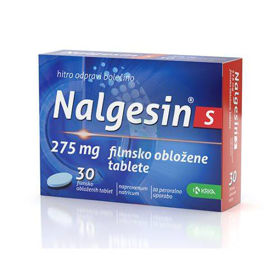Customer question:
Lymph nodes, why are they swollen? Are they inflamed? What are the causes of swelling? Anonymous customer's question
Pharmacist's answer:
Inflamed lymph nodes most often indicate a common infection, but they can also signal a medical condition, such as an immune disorder or, more rarely, a type of cancer.
Lymph glands (also called lymph nodes) are pea-sized tissue lumps containing mainly white blood cells. These help fight bacteria and viruses that cause infection. Lymph nodes are essential to the immune system and are found throughout the body.
Lymphadenopathy is another name for inflammation or swelling of the lymph nodes. Symptoms that may be present along with swollen lymph nodes are:
- cough
- fatigue
- fever
- fever
- stuffy nose
- sweating
Swollen lymph nodes in the groin can cause pain when walking or bending over.
Infections are the most common cause of inflamed lymph nodes. Infections they can cause include:
- ear infection
- sexually transmitted disease
- abscess or impacted tooth
- swelling (inflammation) of the gums (gingivitis)
- colds, flu, and other infections
- mononucleosis
- sores in the mouth
- tonsillitis
- tuberculosis
- skin infections
- Immune or autoimmune disorders that can cause inflamed lymph nodes are:
- HIV
- rheumatoid arthritis
Cancers that can cause swollen lymph nodes include:
- leukemia
- Hodgkin's disease
- non-Hodgkin's lymphoma
Many other cancers can also cause this problem.
Some medications can also cause swollen lymph nodes, including:
- medicines for epilepsy, such as phenytoin
- typhoid immunization
Some swollen lymph nodes return to normal when the underlying condition, such as a minor infection, improves.
See your doctor if you are concerned or have swollen lymph nodes:
- that appeared for no apparent reason
- that are increasing or have been present for at least two to four weeks
- that feel hard or rubbery or do not move when pressed
- accompanied by persistent fever, night sweats, or unexplained weight loss
Get medical help right away if you have trouble swallowing or breathing. The swelling is probably the result of a non-cancerous condition, but it is best to be sure of this with a proper diagnosis from a doctor or specialist.
In some cases, additional MRI tests may be necessary. In this case, the doctor may order a lymph node biopsy. This minimally invasive test involves removing a sample of cells from the lymph node. The cells are then sent to a laboratory where they are tested for specific/possible diseases such as cancer and others.
Interesting reading: Enlarged lymph nodes












 Facebook
Facebook
 Instagram
Instagram
 info@moja-lekarna.com
info@moja-lekarna.com

